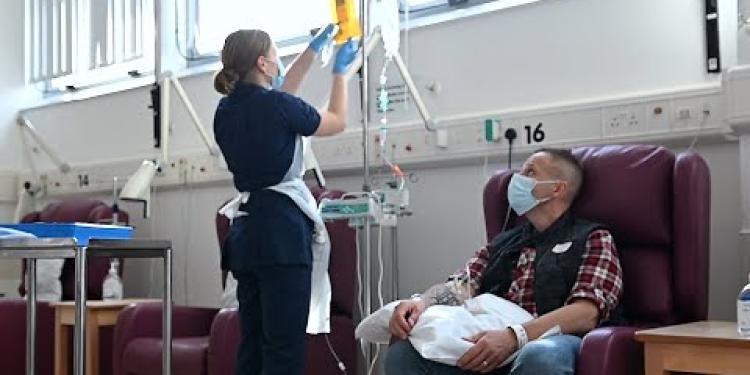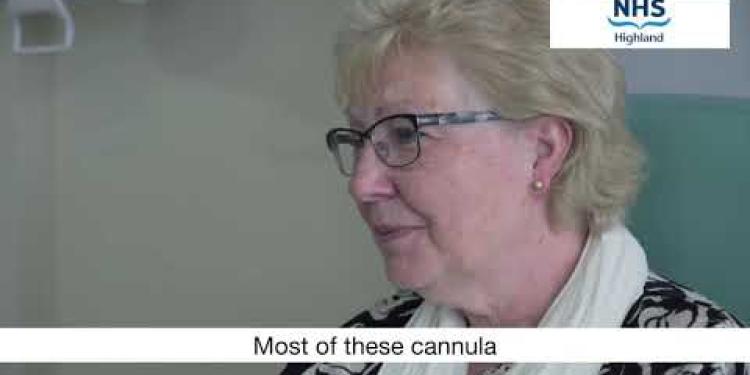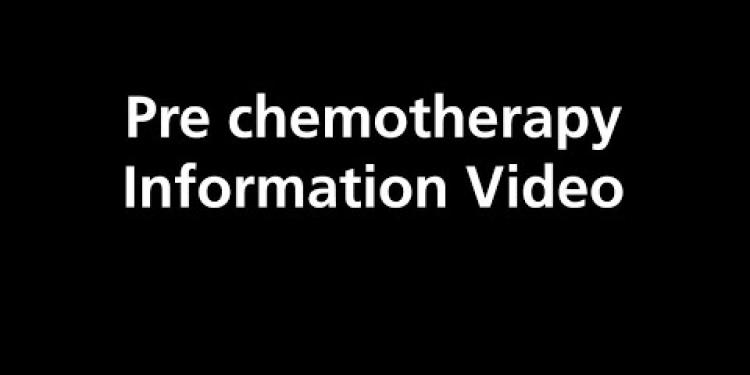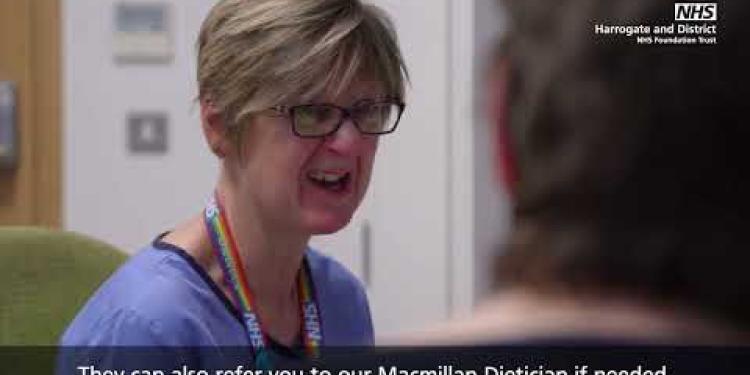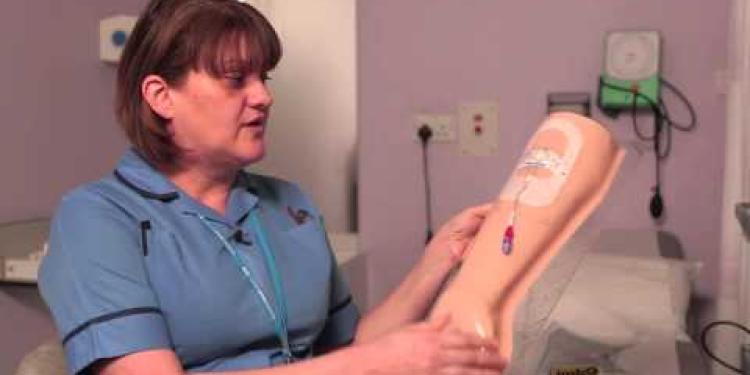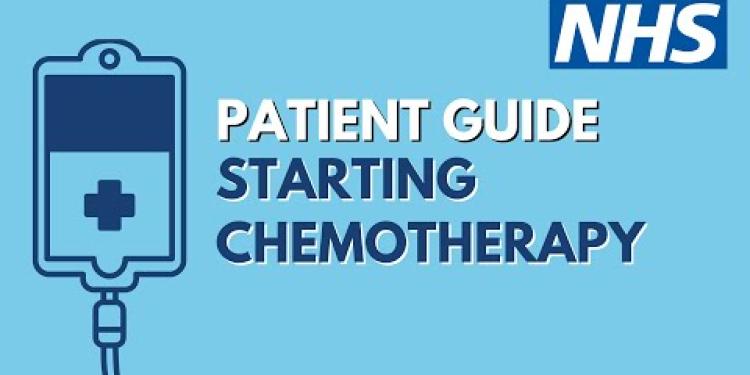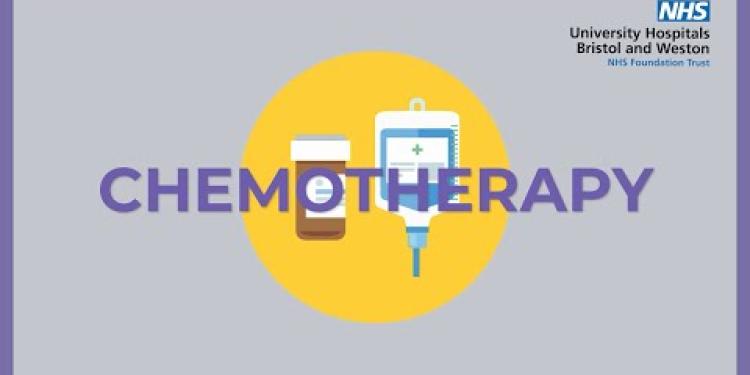Important Information On Using This Service
- Ergsy carefully checks the information in the videos we provide here.
- Videos shown by YouTube after a video has completed have NOT been reviewed by ERGSY.
- To view, click the arrow in the center of the video.
Using Subtitles and Closed Captions
- Most of the videos you find here will have subtitles and/or closed captions available.
- You may need to turn these on and choose your preferred language.
Turn Captions On or Off
- Go to the video you'd like to watch.
- If closed captions (CC) are available, settings will be visible on the bottom right of the video player.
- To turn on captions, click settings.
- To turn off captions, click settings again.
Find A Professional
More Items From Ergsy search
-
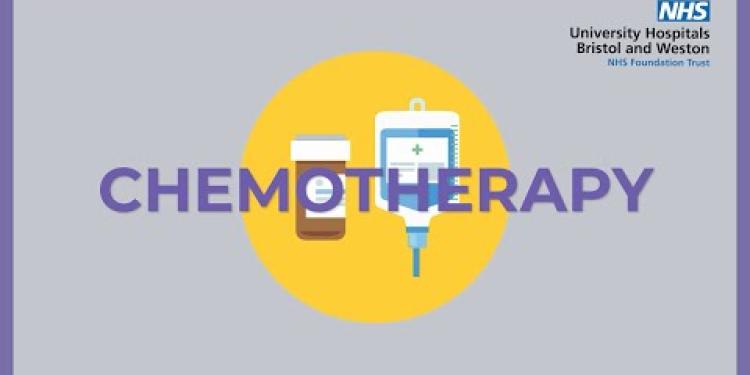
Chemotherapy
Relevance: 100%
-
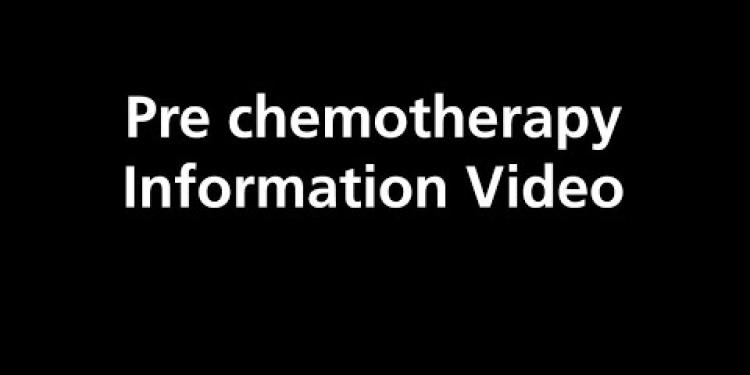
Pre chemotherapy Information Video
Relevance: 97%
-
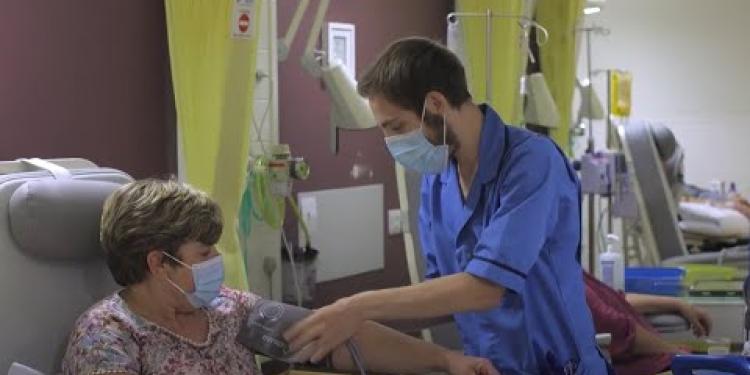
Chemotherapy - the patient journey
Relevance: 91%
-
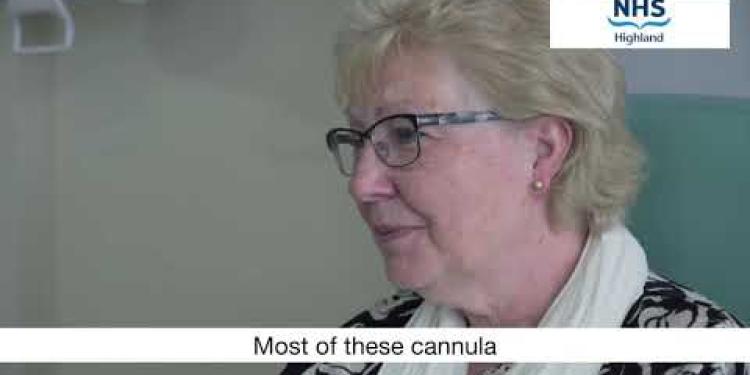
Introduction to Chemotherapy, NHS Highland
Relevance: 86%
-
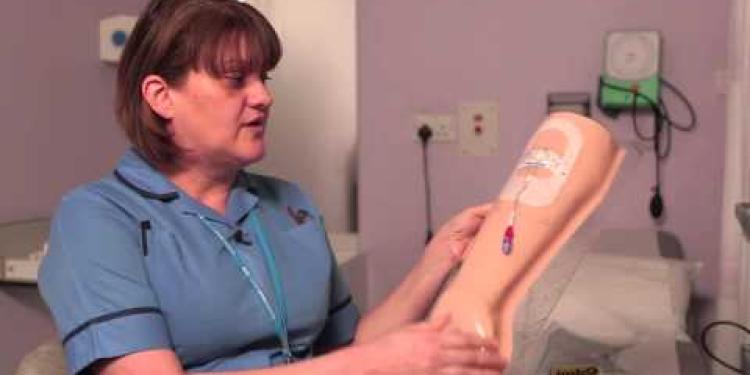
Chemotherapy - The Queen's Centre
Relevance: 79%
-
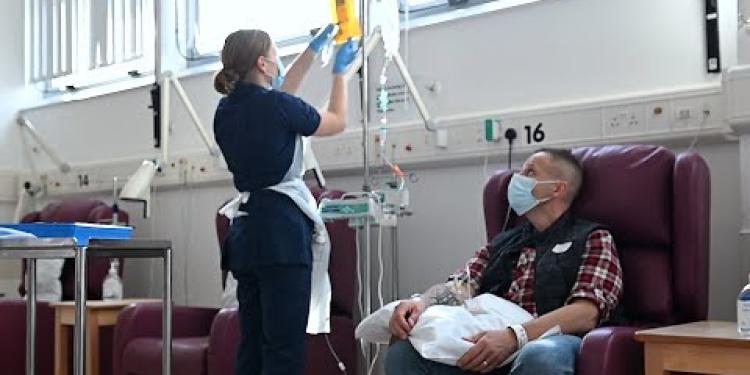
Having chemotherapy and other treatments in the Day Treatment Unit
Relevance: 63%
-
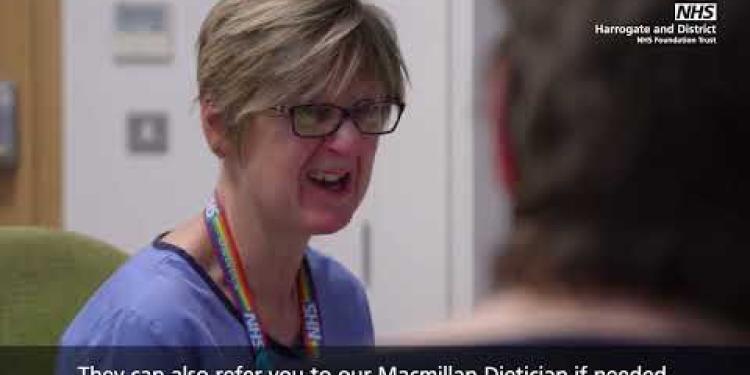
Information for all cancer patients receiving Chemotherapy or Targeted Therapy at HDFT.
Relevance: 35%
-
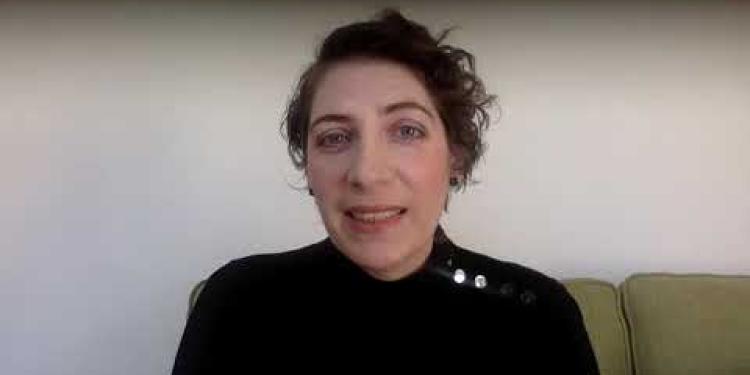
World Pancreatic Cancer Day - No Time to Wait
Relevance: 23%
-
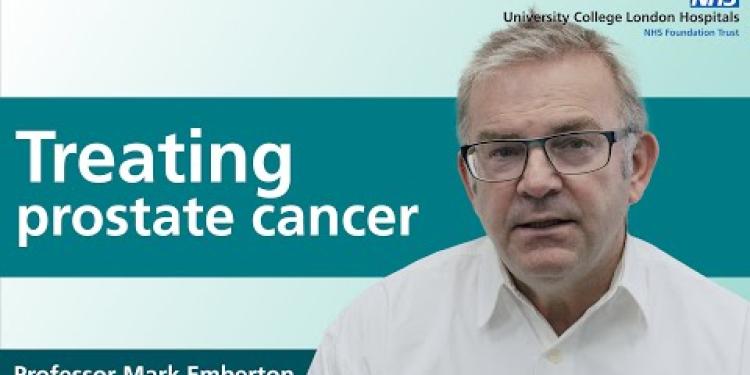
Treating prostate cancer
Relevance: 20%
-
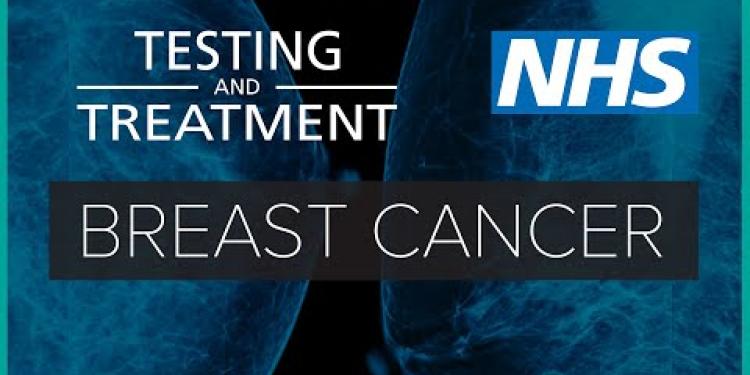
Breast cancer: testing and treatment | NHS
Relevance: 14%
-
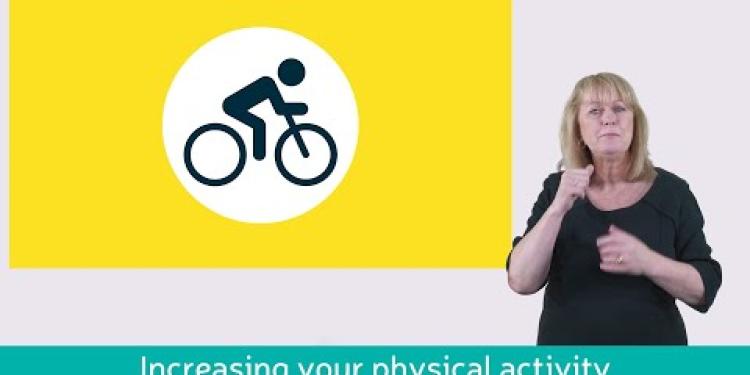
Learn about bowel cancer (British Sign Language version)
Relevance: 14%
-

An Interview With JC About His Leukemia And His Leukemia Treatment
Relevance: 12%
-
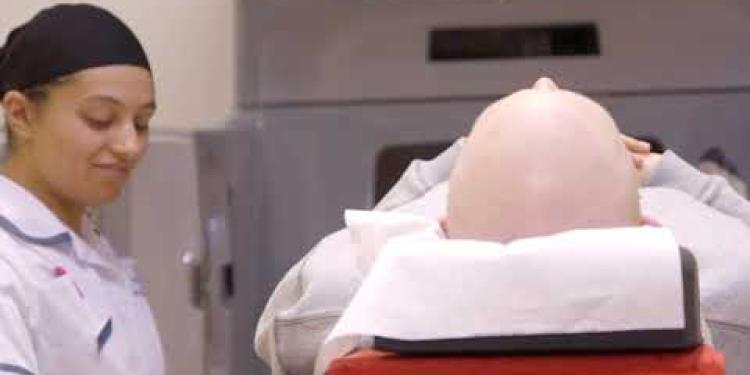
What is Radiotherapy, and its use in treatment for cancers?
Relevance: 11%
-
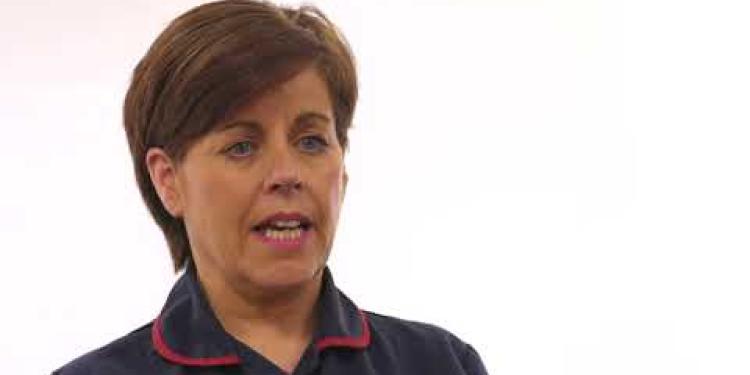
Ovarian Cancer
Relevance: 10%
-
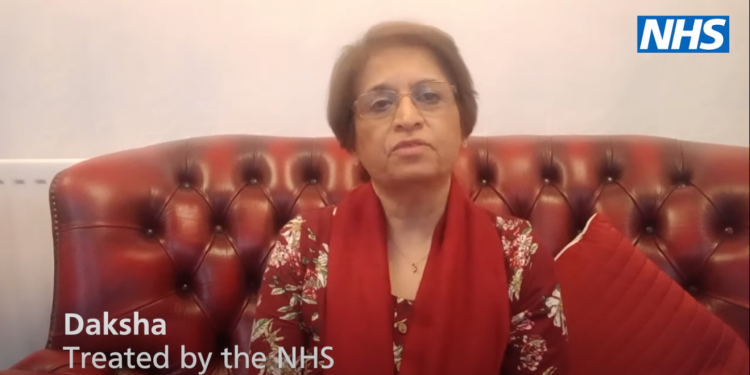
What is Cancer?
Relevance: 10%
-

Mesothelioma
Relevance: 8%
-
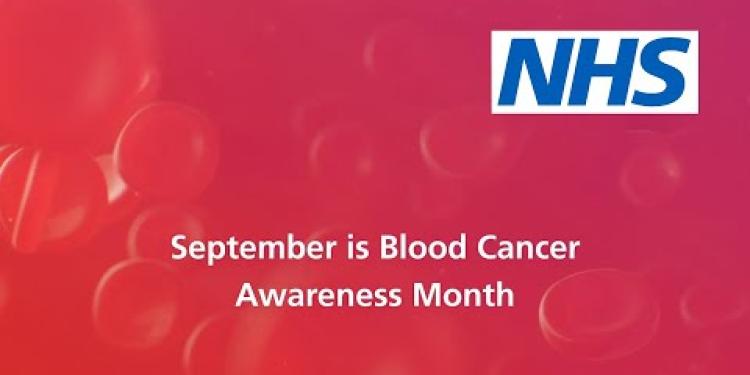
4 facts about blood cancer that you should know | NHS
Relevance: 8%
-
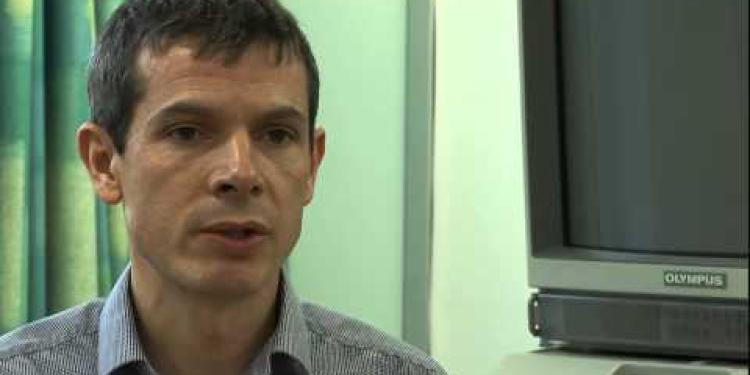
Bowel cancer - Symptoms and signs to look out for
Relevance: 8%
-
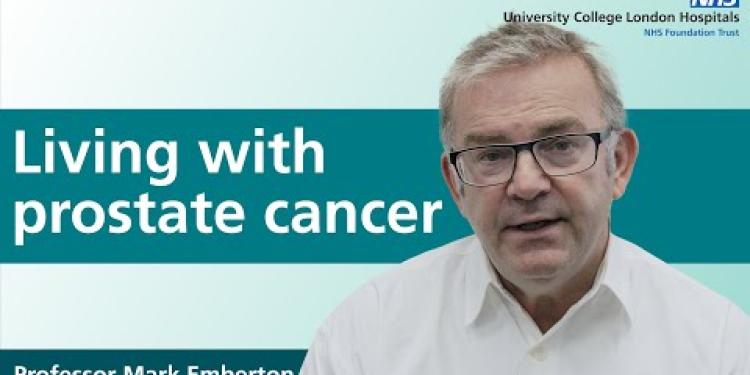
Living with prostate cancer
Relevance: 7%
-
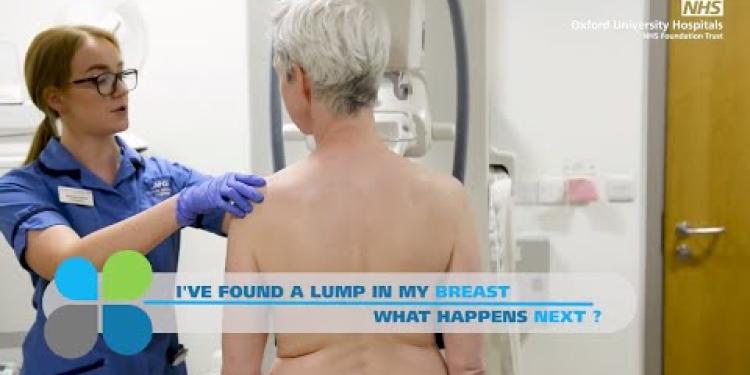
I've found a lump in my breast - What happens next? The breast diagnostic clinic
Relevance: 7%
-
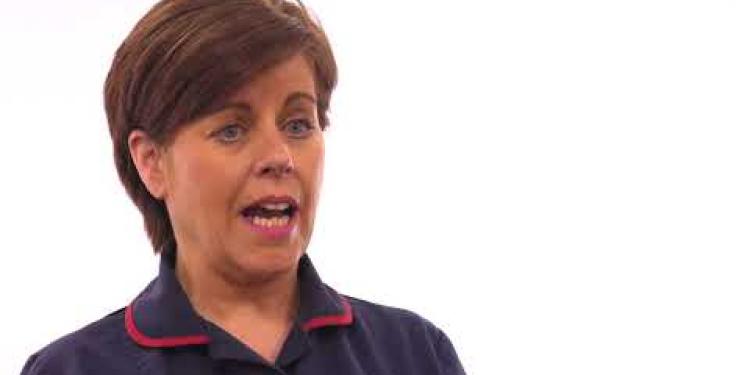
Endometrial Cancer
Relevance: 7%
-

What is Prostate Cancer?
Relevance: 7%
-
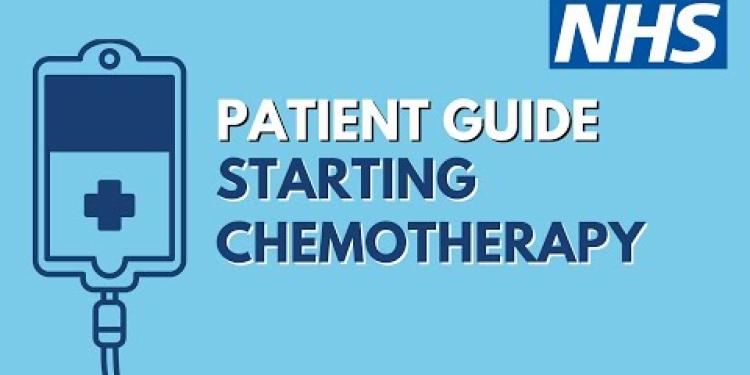
Starting Chemotherapy
Relevance: 6%
-
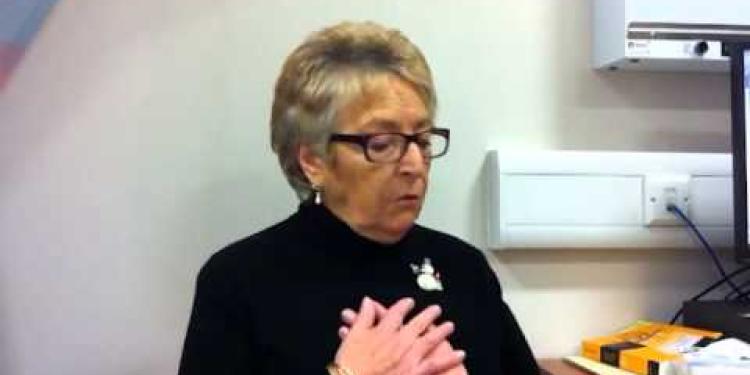
Neuroendocrine tumour patient video
Relevance: 5%
-
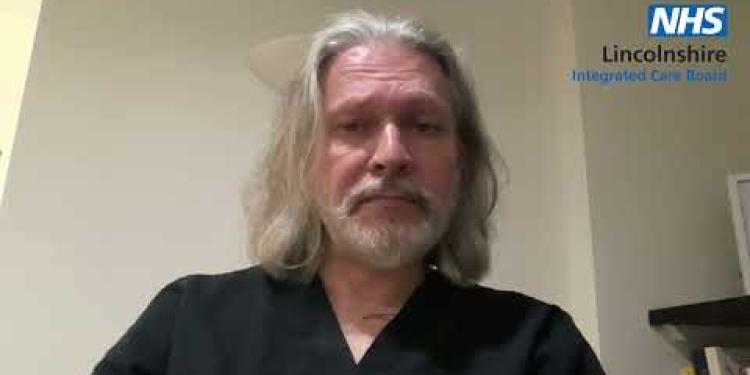
Getting to know your Testicles: Testicular Cancer Awareness with Dr James Howarth, Spilsby Surgery
Relevance: 5%
-
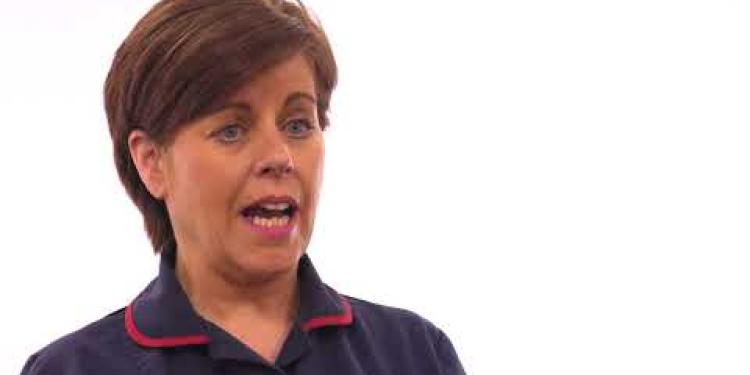
Endometrial Cancer
Relevance: 5%
-
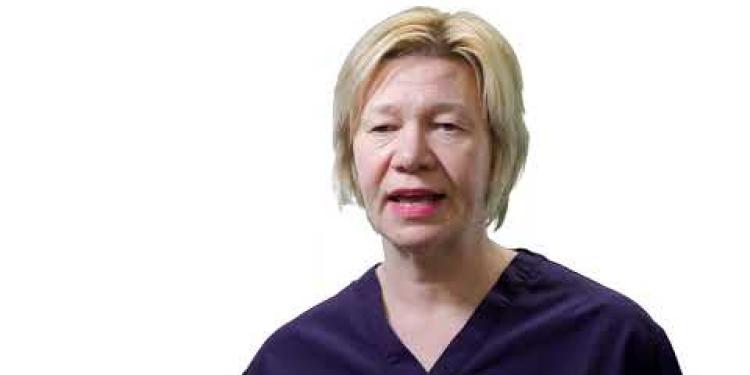
Head and Neck Cancer Diagnosis
Relevance: 5%
-
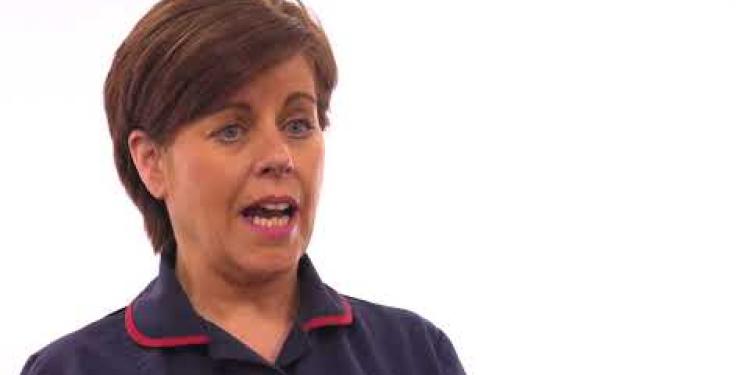
Endometrial Cancer
Relevance: 5%
-

Mesothelioma
Relevance: 5%
-
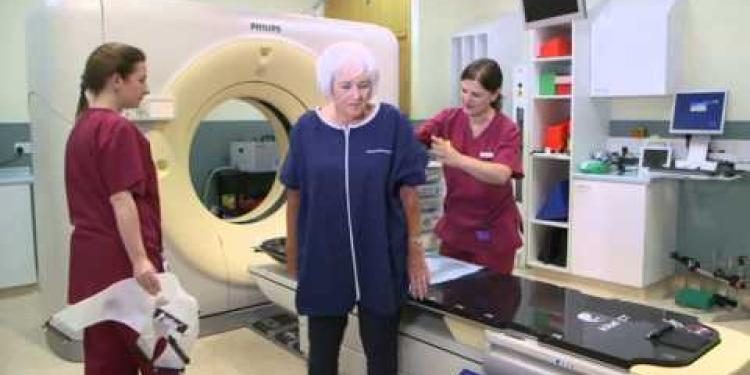
Radiotherapy to the Head and Neck: A Guide for patients and their carers
Relevance: 5%
-

Mouth Cancer Infomercial
Relevance: 5%
-
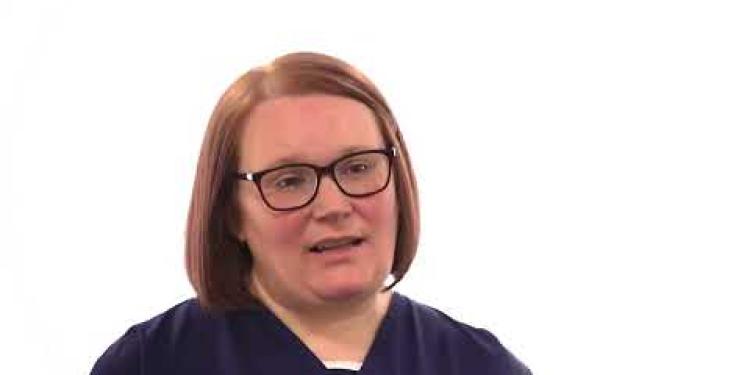
Vaginal Cancer
Relevance: 5%
-

Skin cancer education
Relevance: 5%
-

Mouth Cancer Awareness
Relevance: 5%
-
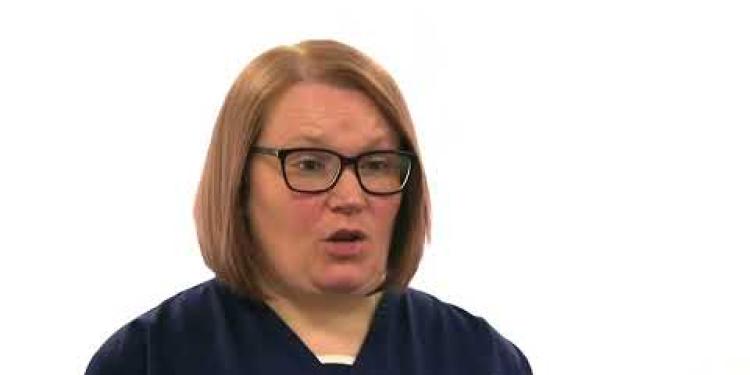
Vulval Cancer
Relevance: 5%
-
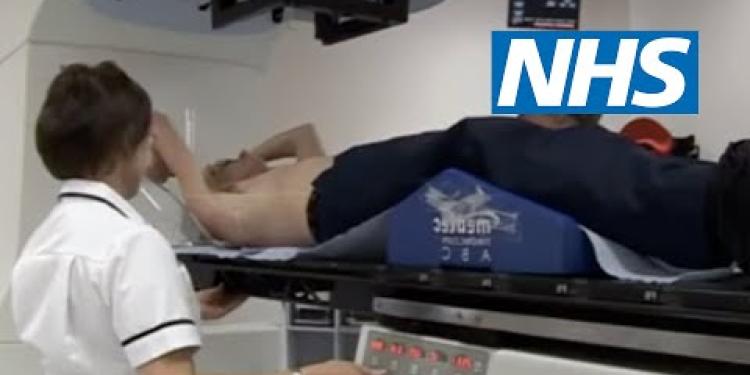
Cancer treatment: what happens during radiotherapy? | NHS
Relevance: 4%
-
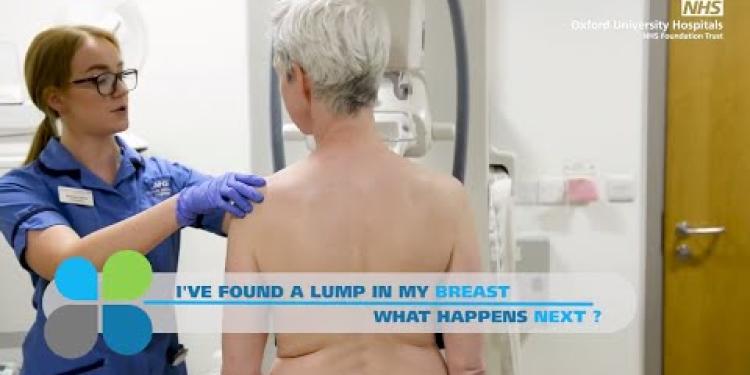
I've found a lump in my breast - What happens next? The breast diagnostic clinic
Relevance: 4%
-
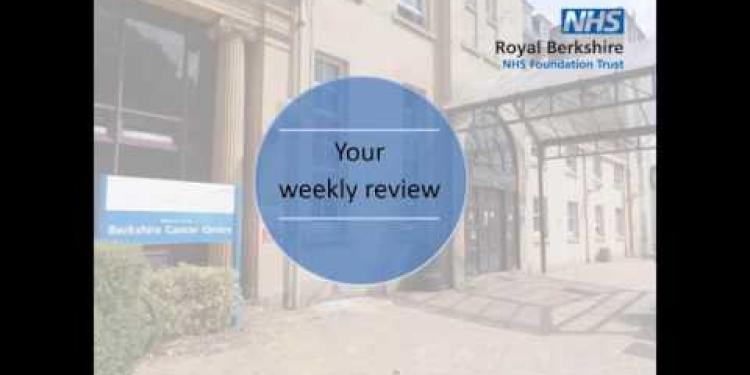
Royal Berkshire NHS Foundation Trust: Radiotherapy for prostate cancer
Relevance: 4%
-
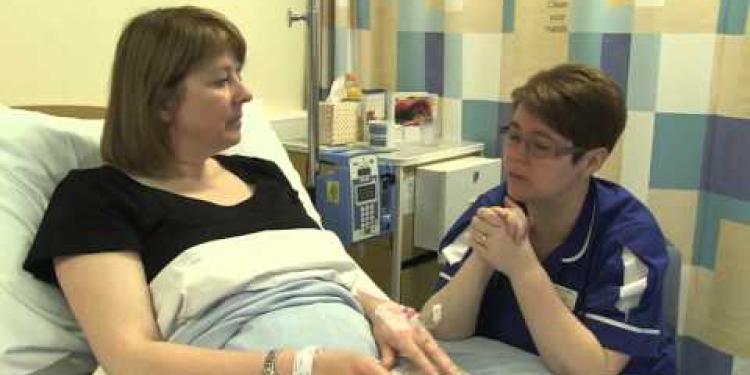
Blood Transfusion
Relevance: 4%
-
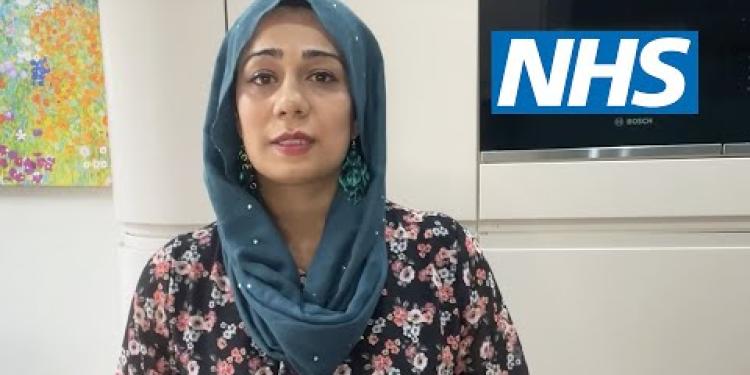
Get cancer symptoms checked by your GP | NHS
Relevance: 4%
Chemotherapy - The Patient Journey
Understanding Chemotherapy
Chemotherapy is a treatment process that uses powerful chemicals to target and kill rapidly growing cancer cells. Doctors in the United Kingdom may recommend chemotherapy alone or in combination with other treatments such as surgery or radiotherapy. It can be administered in various ways, including intravenous injections, oral pills, or directly into the affected area.Initial Consultation and Planning
The chemotherapy journey begins with an initial consultation with an oncologist. During this meeting, the oncologist will discuss the type, stage, and location of the cancer. They will also consider the patient's overall health before recommending a tailored chemotherapy plan. This plan usually includes the type of drugs to be used, dosages, and the schedule of treatment sessions.Starting Treatment
Once the plan is finalised, the patient will begin their first course of chemotherapy. Treatments often take place in a hospital or specialised clinic, and each session can vary in length from a few hours to several days, depending on the regimen. Patients in the UK are typically supported by skilled nurses who are trained to manage the complexities of chemotherapy.Managing Side Effects
Chemotherapy can cause various side effects, including fatigue, nausea, hair loss, and changes in blood counts. Patients are given support to manage these side effects, which might include additional medications and therapies. The NHS provides comprehensive guidance and resources to help patients cope with these challenges.Monitoring and Adjustments
Throughout the chemotherapy period, regular monitoring through blood tests and scans is essential to evaluate how well the treatment is working and to adjust as needed. The oncologist will meet with the patient regularly to discuss progress and may modify the treatment plan if necessary.Post-Treatment Care
After completing chemotherapy, follow-up care is crucial. The patient will continue to have regular check-ups to monitor their recovery and manage any long-term side effects. Psychological and emotional support is also available to help patients adjust after treatment. Organisations such as Macmillan Cancer Support provide invaluable resources for patients and their families.Chemotherapy - The Patient Journey
Understanding Chemotherapy
Chemotherapy is a treatment that uses strong medicine to kill cancer cells. Doctors in the UK might use chemotherapy alone or with other treatments, like surgery or radiotherapy. You can get chemotherapy in different ways: by injections, pills, or right in the area where the cancer is.Initial Consultation and Planning
Your chemotherapy journey starts with a meeting with a cancer doctor. In this meeting, the doctor talks about the kind of cancer you have and how far it has spread. They also check your general health to make a special plan for your chemotherapy. This plan tells what medicines you will get, how much, and when.Starting Treatment
When the plan is ready, you will start your chemotherapy treatment. Treatments usually happen in a hospital or a special clinic. Each treatment session can last a few hours or even a few days, depending on the plan. In the UK, caring nurses help you through this process.Managing Side Effects
Chemotherapy can make you feel very tired, sick, or cause hair loss. It can also change the levels of some cells in your blood. You will get help to deal with these side effects, which might include extra medicines. The NHS offers lots of support and information to help you manage.Monitoring and Adjustments
While you are having chemotherapy, you will have regular blood tests and scans. This helps check if the treatment is working. The cancer doctor will meet you to talk about how you're doing and might change the plan if needed.Post-Treatment Care
After you finish chemotherapy, you will keep having check-ups to see how you are recovering. You can also get emotional support to help you feel better after treatment. Groups like Macmillan Cancer Support offer great help for you and your family.Frequently Asked Questions
What is chemotherapy?
Chemotherapy is a type of cancer treatment that uses drugs to destroy cancer cells. It works by stopping or slowing the growth of these cells.
How is chemotherapy administered?
Chemotherapy can be administered in various ways including intravenously (IV), orally in pill form, through injections, or through topical treatment applied to the skin.
What are the common side effects of chemotherapy?
Common side effects include fatigue, nausea, vomiting, hair loss, and an increased risk of infections due to reduced white blood cell counts.
How long does a typical chemotherapy session last?
A chemotherapy session can vary in duration, typically lasting from 30 minutes to several hours, depending on the type of drugs being administered.
How often will I need chemotherapy treatments?
The frequency of chemotherapy treatments depends on the type of cancer, the chemotherapy regimen, and the patient's response to treatment. It can range from daily to weekly, or even monthly sessions.
Can I continue to work during chemotherapy?
Many people continue to work during chemotherapy, but it largely depends on how they feel and the nature of their job. It's important to discuss with your employer and healthcare team for advice and support.
Will I lose my hair during chemotherapy?
Hair loss is a common side effect of many chemotherapy drugs, but not all. Your healthcare team can provide more specific information based on your treatment plan.
Can I eat normally during chemotherapy?
Maintaining a healthy diet during chemotherapy is important. However, some patients may experience changes in appetite or taste. Consulting with a dietitian can be helpful to manage these changes.
What should I bring to my chemotherapy session?
Bring items that make you comfortable, such as a blanket, books, electronic devices, snacks, and drinks. It’s also advisable to bring someone with you for support if possible.
Are there any long-term side effects of chemotherapy?
Some long-term side effects can include fertility issues, heart problems, or nerve damage. Discussing potential long-term effects with your healthcare team is important.
How will chemotherapy affect my daily life?
Chemotherapy can impact daily life through side effects like fatigue, but many people continue to maintain their regular activities. It's important to balance activity with rest and follow your healthcare team's advice.
Can chemotherapy be combined with other treatments?
Yes, chemotherapy is often used in combination with other treatments such as surgery, radiation therapy, or targeted therapy, depending on the specific type of cancer and treatment plan.
How will I know if the chemotherapy is working?
Your healthcare team will monitor your progress through physical examinations, blood tests, and imaging tests like scans to determine the effectiveness of the treatment.
Can I exercise during chemotherapy?
Light to moderate exercise, as tolerated, can be beneficial during chemotherapy. Always consult with your healthcare team before starting or continuing an exercise regimen.
Where can I find support during my chemotherapy journey?
Support can be found through hospital support groups, counseling, patient advocacy organisations like Macmillan Cancer Support, and talking to friends and family. Your healthcare team can also provide resources.
What is chemotherapy?
Chemotherapy is a type of medicine used to treat cancer. It works by killing cancer cells.
This medicine can make you feel better by helping to shrink cancer.
Sometimes, chemotherapy can make you feel tired or sick, but doctors can give you other medicine to help with that.
It's important to talk to your doctor and ask questions if you don't understand something. They are there to help you feel better.
Chemotherapy is a treatment for cancer. It uses special medicine to kill cancer cells. It stops these cells from growing or slows them down.
How do doctors give chemotherapy?
Here is how chemotherapy, or "chemo," is usually given to help people with cancer:
- By Mouth: You swallow a pill or liquid.
- Injection: Doctors give you a shot with a needle.
- IV Drip: Medicine goes into your body through a tube in your vein. This is like getting a drink of medicine on the inside.
- Cream: You put a special cream on your skin.
Do you find this information tricky? Here are some helpful ideas:
- Talk to your doctor: Ask them questions. They can help you understand.
- Take notes: Write down what you learn. This can help you remember.
- Bring a friend or family member: They can help you listen and understand.
Chemotherapy is a type of medicine to treat cancer. There are different ways to take it. You might:
- Get it through a needle into your vein. This is called an IV.
- Take it as a pill that you swallow.
- Get it as a shot (injection).
- Put it on your skin like a cream.
If you find reading hard, you can try:
- Listening to audiobooks about chemotherapy.
- Asking a friend or family member to read with you.
- Using apps that read the text out loud.
What are the common side effects of chemotherapy?
Chemotherapy is a strong medicine used to treat cancer. It can make you feel better, but sometimes it has side effects. Side effects are things that happen because of the medicine.
Here are some common side effects of chemotherapy:
- Feeling very tired.
- Feeling sick or wanting to throw up.
- Loss of hair.
- Changes in eating or how food tastes.
- Getting bruises easily or bleeding.
Everyone is different, so not everyone will have the same side effects.
Tips to feel better:
- Rest a lot and take naps when you can.
- Eat small meals and drink a lot of water.
- Talk to your doctor or nurse about how you feel.
Ask someone to help you if you find it hard to understand or remember this information.
Some common side effects are feeling very tired, feeling sick, throwing up, losing hair, and getting sick more often because there are fewer cells in the blood to fight bugs.
How long is a usual chemotherapy session?
Chemotherapy is a strong medicine to help fight cancer. A session means the time you spend getting the medicine.
A usual chemotherapy session can take several hours. Sometimes it might be shorter, or it might be longer.
It is important to bring something to do. You can read a book, listen to music, or watch a video.
If you have questions, ask your doctor or nurse. They can help you understand what will happen.
Your chemotherapy session might be short or long. It can be as quick as 30 minutes or take many hours. The length of time depends on the medicine you are given.
How often will I get chemotherapy?
How often you get chemotherapy depends on:
- What type of cancer you have
- The treatment plan your doctor chooses
- How your body reacts to the treatment
You might have treatments every day, every week, or once a month.
If you need help understanding this, you can:
- Ask your doctor to explain it
- Use pictures or videos to learn more
- Get a friend or family member to help you
Can I keep working while having chemotherapy?
Some people keep working while they have chemo. This depends on how they feel and what kind of job they have. It's good to talk to your boss and doctor so they can help you.
Will I lose my hair during chemotherapy?
Chemotherapy is a strong medicine used to treat cancer. Some people lose their hair when they take it.
This might not happen to everyone. It depends on the type of medicine.
If you are worried about losing your hair, ask your doctor. They can help explain what might happen.
You can also use hats, scarves, or wigs to cover your head if you want to.
Some medicines for cancer can make your hair fall out. But not all cancer medicines do this. Ask your doctors or nurses about what to expect with your treatment.
Can I eat like usual during chemotherapy?
It is okay to eat your regular food when you have chemotherapy. But sometimes,
the treatment might make you feel sick or lose your appetite. Here are some tips:
- Try to eat small meals more often.
- Drink plenty of water.
- Ask someone to help you prepare food.
It is important to talk to your doctor or nurse about what is best for you.
It is important to eat healthy when you are having chemotherapy. But sometimes, you might not feel like eating, or food might taste different. Talking to a food expert, called a dietitian, can help you with this.
What should I bring to my chemotherapy session?
Chemotherapy can be a long visit. Here are some things to pack:
- A good book or magazine to read.
- Snacks like fruit or crackers, in case you get hungry.
- A bottle of water to stay hydrated.
- Comfortable clothes and maybe a blanket.
- Your favorite music or a device to play it on.
- A friend or family member for support.
It's a good idea to prepare, so you feel comfortable and relaxed during your visit.
Bring things that make you feel good, like a blanket, books, or tablets. You can also bring snacks and drinks. If you can, bring someone with you to help and keep you company.
Does chemotherapy have side effects that last a long time?
Some long-lasting side effects might be having trouble having babies (fertility issues), heart problems, or damage to nerves. It's important to talk to your doctor or nurse about these possible long-lasting effects.
How will chemo change my everyday life?
When people have chemotherapy, it can make them feel very tired. This is called fatigue. But lots of people still do their normal activities.
It is important to do some things and then rest. Always listen to what your healthcare team tells you.
Can you use chemotherapy with other treatments?
Chemotherapy is a strong medicine used to fight cancer. Sometimes, doctors use it with other treatments to help people get better. Here are some other treatments that can be used with chemotherapy:
- Surgery: Doctors might remove cancer with an operation.
- Radiotherapy: Strong rays, like X-rays, help kill cancer cells.
- Targeted therapy: These are special medicines that focus on cancer cells.
- Immunotherapy: This treatment helps your body fight cancer.
If you or someone you know is having treatment, here are some things that can help:
- Bring a friend or family member to your doctor visits for support.
- Ask questions if you don’t understand something.
- Write down what the doctor says to help you remember.
- Use pictures or videos to learn more about treatments.
Always talk to the doctor about how you feel and any worries you have. They are there to help you!
Yes, chemotherapy is often used with other treatments. These can be surgery, radiation therapy, or targeted therapy. This depends on the type of cancer and treatment plan.
How can I tell if the chemotherapy is helping?
Your doctor team will check how you are doing. They will look at your body, do blood tests, and take pictures, like scans, to see if the treatment is helping.
Can I exercise while having chemo?
Chemotherapy, or "chemo," is a treatment that helps fight cancer. You might wonder if you can still do exercise during this time.
It's important to talk to your doctor first. Your doctor can tell you what kind of exercise is safe for you.
Some gentle exercises like walking or stretching can help you feel better. Exercising can give you more energy and make you feel happier.
Remember, everyone is different. Listen to your body and don't push yourself too hard.
Doing some light exercise can be good when you are having chemotherapy. Talk to your doctors or nurses before you start or keep doing any exercises.
Who can help me when I have chemotherapy?
Chemotherapy is a treatment that can make you feel unwell. It is important to have people to help you during this time.
Here are some people and places that can offer support:
- Doctors and Nurses: They can answer questions and help you with any problems.
- Family and Friends: They can keep you company and help with daily tasks.
- Support Groups: Talking to others who are also having chemotherapy can make you feel better.
- Counselors: They can listen and help with your feelings.
Tools that can help you:
- Reminders: Use a calendar or a reminder app to keep track of your appointments and medicine.
- Journals: Writing down your thoughts can help you feel better.
- Apps: Some apps can help you relax, like ones with calming music or nature sounds.
Don’t be afraid to ask for help. People want to help you feel better.
You can get help from groups at the hospital, talking to a counselor, or organizations like Macmillan Cancer Support. It's also good to talk to your friends and family. Your doctors and nurses can give you more information too.
Useful Links
Useful links from: Starting Chemotherapy
- NHS - Mental Health Services Information on accessing mental health services through the NHS, including treatment options and where to find support.
- Mind - Mental Health Charity A UK charity providing advice and support to empower anyone experiencing a mental health problem.
- Rethink Mental Illness Provides support and information for people affected by mental health issues, including carers and families.
- Samaritans Charity offering emotional support to anyone in distress or struggling to cope.
Useful links from: Having chemotherapy and other treatments in the Day Treatment Unit
- NHS - Chemotherapy Comprehensive guide on chemotherapy, including its purpose, what happens during the treatment, and potential side effects.
- Macmillan Cancer Support - Chemotherapy Detailed information from Macmillan Cancer Support about chemotherapy, including preparation, the process, and aftercare.
- Cancer Research UK - Chemotherapy Resource from Cancer Research UK explaining what chemotherapy is, types of chemotherapy drugs, and side effects management.
- NHS - Cancer Treatment: Day Treatment Unit NHS guide to cancer treatment options, including what to expect when receiving treatments in a Day Treatment Unit.
Useful links from: Pre chemotherapy Information Video
- NHS - Chemotherapy This NHS page provides comprehensive information about chemotherapy, including what it is, how it is performed, and what to expect during treatment.
- Macmillan Cancer Support - Chemotherapy Macmillan Cancer Support offers detailed information on chemotherapy, including preparation tips, what happens during treatment, and potential side effects.
- Cancer Research UK - Chemotherapy This page by Cancer Research UK provides an overview of chemotherapy, covering topics such as how chemotherapy works, types of chemotherapy, and the treatment process.
- Marie Curie - Chemotherapy Marie Curie offers guidance on chemotherapy, aimed at helping patients understand their treatment, manage side effects, and find additional support.
Useful links from: Information for all cancer patients receiving Chemotherapy or Targeted Therapy at HDFT.
- NHS - Chemotherapy Provides comprehensive information on what chemotherapy is, how it's administered, potential side effects, and tips for managing symptoms.
- NHS - Targeted Cancer Drugs Offers detailed information on targeted cancer therapies, how they work, who might be eligible, and possible side effects.
- Cancer Research UK - Chemotherapy Explains the chemotherapy process, including preparation, types of chemotherapy, side effects, and coping strategies.
- Macmillan Cancer Support - Chemotherapy Provides an extensive overview of chemotherapy treatments, managing side effects, emotional support, and practical advice for patients and caregivers.
Useful links from: Chemotherapy - The Queen's Centre
- Chemotherapy Information - NHS Comprehensive resource from the NHS detailing what chemotherapy is, how it works, possible side effects, and preparation for treatment.
- Cancer Research UK - Chemotherapy Detailed guide by Cancer Research UK covering the use of chemotherapy in cancer treatment, how it is administered, and managing side effects.
- Macmillan Cancer Support - Chemotherapy Macmillan Cancer Support offers extensive information on chemotherapy, including practical advice, emotional support, and FAQs.
- Chemotherapy - Marie Curie Marie Curie provides essential information on chemotherapy, focusing on the support available for those undergoing treatment and their families.
Useful links from: Chemotherapy
- NHS - Chemotherapy Official NHS page providing detailed information on chemotherapy, including what it is, how it's done, side effects, and recovery.
- Macmillan Cancer Support - Chemotherapy Macmillan Cancer Support offers comprehensive information on chemotherapy, including how it works, managing side effects, and personal experiences.
- Cancer Research UK - Chemotherapy Cancer Research UK provides in-depth information about chemotherapy, its purpose, how it's administered, and what patients can expect during treatment.
- Breast Cancer Now - Chemotherapy Breast Cancer Now offers specific details about chemotherapy for breast cancer, including treatment types, side effects, and support options.
More Videos of Interestdiagnosis
Have you found an error, or do you have a link or some information you would like to share? Please let us know using the form below.
- Ergsy carfully checks the information in the videos we provide here.
- Videos shown by Youtube after a video has completed, have NOT been reviewed by ERGSY.
- To view, click the arrow in centre of video.
- Most of the videos you find here will have subtitles and/or closed captions available.
- You may need to turn these on, and choose your preferred language.
- Go to the video you'd like to watch.
- If closed captions (CC) are available, settings will be visible on the bottom right of the video player.
- To turn on Captions, click settings .
- To turn off Captions, click settings again.
